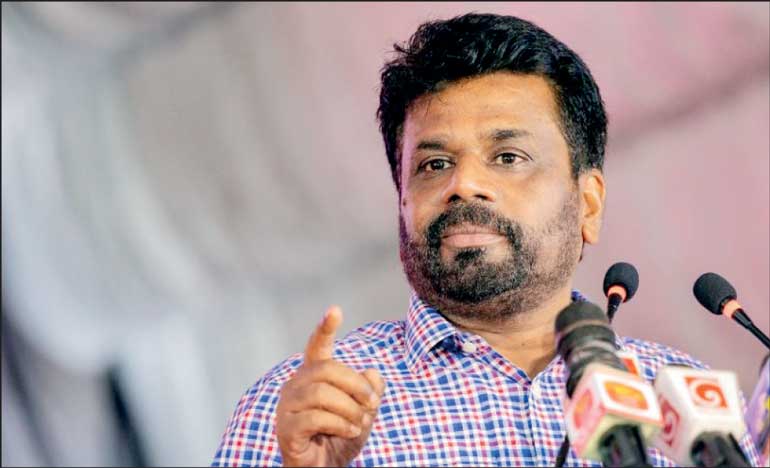Friday Feb 20, 2026
Friday Feb 20, 2026
Saturday, 27 September 2025 00:08 - - {{hitsCtrl.values.hits}}

The pre-election promises spanning political, social and economic dimensions have been
seemingly kept on a selective basis
A bigger picture emerges on the larger canvas of national political life... it is one in which the relatively few, early, ongoing good deeds that should redound to government’s credit are overshadowed by the greater good it has yet to do – because we’re beginning to be agnostic to their potential to effect systemic change, having lost faith in their slow, steady and plebeian ways. Also, we’ve failed to remember the religious zeal of previous dispensations for evil deeds
 No good deed goes unpunished, mused libertarian socialist Oscar Wilde, no doubt while in Reading Gaol and reminiscing about that ironic truism in his own short life.
No good deed goes unpunished, mused libertarian socialist Oscar Wilde, no doubt while in Reading Gaol and reminiscing about that ironic truism in his own short life.
Perhaps some of the stalwarts in governmental ranks share a similar sentiment about the electorate at large today, sensing dissent even beyond the ranks of Tuscany.
Perhaps the NPP regime suspects that for all the lip service its loyalists pay to the powers be, there is an emerging feeling of dissension at the state of the nation a year down the road.
In the main it is because the government of the day has not necessarily done too badly for itself and the people it represents but also that, like the regimes it aspired to replace, it has not done enough for the parts of the polity it does not necessarily represent.
We mean by this paradox that while the National People’s Power has kept some of its promises to some of the people, it has arguably not lived up to the full promise and potential of the new broom that was envisaged to not only sweep well but utterly cleanse the Augean stables of local politics.
Is it only the law’s delays that keep the erstwhile miscreants at large while justice languishes? Lasantha’s and Thajudeen’s killers? Ekneligoda’s abductors? The perpetrators of massacres other than at Chemmani?
A start has been made, for sure; but the element of self-scrutiny whereby ‘judgment must begin in the household of god’ seems to be missing!
While the shambles of a republic in ruins after decades of the uni-political culture that ruled the roost would certainly take a comparable or longer time to set right again, the first year of the tyro administration has yielded slow and steady, yet strangely disappointing, results for a hopeful citizenry beyond the pale of the JVP strongholds.
The good deeds
A quick rehearsal of the newbie government’s achievements in its first year would not be amiss here... as it was in last week’s column (https://www.ft.lk/columns/The-year-that-was-thrashing-towards-NPP-s-thriving-nation/4-781895, Friday 19th September).
To wit: the pre-election promises spanning political, social and economic dimensions have been seemingly kept on a selective basis. Some low-hanging fruit have been plucked. But rotten apples have yet to be evicted from the batch. And the allegation that some of these are in the government’s barrel has been hard to stomach for those who claim that the NPP are sea-green incorruptible.
There are many positives, however. All of them as given below underscoring at least the partial fulfilment (subject to timely ongoing disbursements) of the NPP Govt.’s commitment to its social protection agenda:
Then again, in the political sphere, there have been these salutary developments:
All of these are key first steps in dismantling the culture of crookedness that prevailed too long.
Nor has NPP fandom curbed the enthusiasm of those who note other welcome developments. As one admirer posted recently, perhaps capturing the zeitgeist of those celebrating the much vaunted ‘system change’: “What AKD & NPP have already delivered in just the first year alone is proof enough for me ... Stock Market, balance of payments, tourist arrivals, all economic indicators, currency and base interest rate stabilisation, etc. etc. and above all: no one is putting my tax money into their hip pockets – or robbing EPF/ETF savings of the hard-working people of Sri Lanka.”
The null voids
Some lapses persist in the public imagination, particularly among stubborn dissenters who insist that there is no longer a place for cynical politics after the enthronement of popular sovereignty in the town halls and market squares of the citizens’ uprising best characterised by the Aragalaya.
These lacunae include:
And once again on social media commentators add their peculiar flavour to the mix. As regards the government’s anticorruption drive and stance, one critic charges that “apart from the fake Speaker, no action has been taken against Govt players being investigated”, adding for good measure: “Bribery and corruption offenders being dealt with equitably – irrespective of political affiliations – is a must... no favouritism!”
The court of public opinion being a key indicator of how well government is doing seems to cut no ice with the JVP-led NPP, however.
Measures that comprise a mixed bag – works in progress that still require closer scrutiny by civil society to ensure that the usual suspects don’t slip into new laws – span the gamut from promised re-enactments to fine-tuning ambiguous laws:
Socio-political perspectives
A bigger picture emerges on the larger canvas of national political life... it is one in which the relatively few, early, ongoing good deeds that should redound to government’s credit are overshadowed by the greater good it has yet to do – because we’re beginning to be agnostic to their potential to effect systemic change, having lost faith in their slow, steady and plebeian ways. Also, we’ve failed to remember the religious zeal of previous dispensations for evil deeds.
As the high priest of orthodoxy G. K. Chesterton once essayed: “When men choose not to believe in God, they do not thereafter believe in nothing; they then become capable of believing in anything.” Is just desserts for those who robbed us a judicious disguise for social envy?
Is it a selective republicanism we subscribe to these days... whereby all past political actors in a previous dispensation are rich for the picking, to pluck out of skulking obscurity and punish, while present players get to go scot-free because they are in the camp of the faithful out to dispense ‘justice’?
Outspoken Canadian-American psychiatrist Dr. Jordan Peterson quotes George Orwell to devastating effect, in this regard. Having observed that “after reading the first half of his book (‘The Road to Wigan Pier’), it is impossible not to feel sympathy for the working poor, the clinician and commentator observes that the author he so admires had second thoughts about socialism:
“He [Orwell] concluded that the tweed-wearing, armchair-philosophizing, victim-identifying, pity-and-contempt-dispensing social-reformer types frequently did not like the poor, as they claimed. Instead, they just hated the rich.”
God – and George Orwell – forbid that such a telling charge be brought against those who would punish the plutocrats in our erstwhile kleptocracy not because they favour social justice but out of a misplaced sense of retribution, with the state as judge, jury and executioner. They disguise their resentment and envy with piety, sanctimony and self-righteousness well who often privilege the ‘punish others’ motive over and above the ‘hold self accountable first’ imperative.
End note
We began with Wilde and an oblique reference to his 1891 essay ‘The Soul of Man under Socialism.’ It may be apposite to end with him vis-à-vis the NPP’s vision, especially as regards social justice for the poor and oppressed.
Wilde observed that under capitalism “the majority of the people spoil their lives by an exaggerated and unhealthy altruism” and often feel compelled to solve the social issues caused by that exploitative system, rather than seeking to eliminate their common cause.
He noted that people who care about the common good “seriously and very sentimentally set themselves to the remedying the evils they see in poverty, but their remedies do not cure the disease; they merely prolong it.”
So the libertarian socialist that he was, Wilde advocated for a radical remedy by asserting that “the proper aim to try and reconstruct society on such a basis that poverty will be impossible”.
It may be more low-hanging fruit for the regime in situ. If only the people’s power would begin to treat politics as the art of the possible and consider promises made for a just and equitable society for all as a sacred pledge and not a cynical electoral ploy. Oh yes, and after they’ve plucked a rabbit out of their hat as regards all the other to-dos that remain on the national to-do list. We wish them and all of us the very best.
(Editor-at-large of LMD | A year later – and going forward)